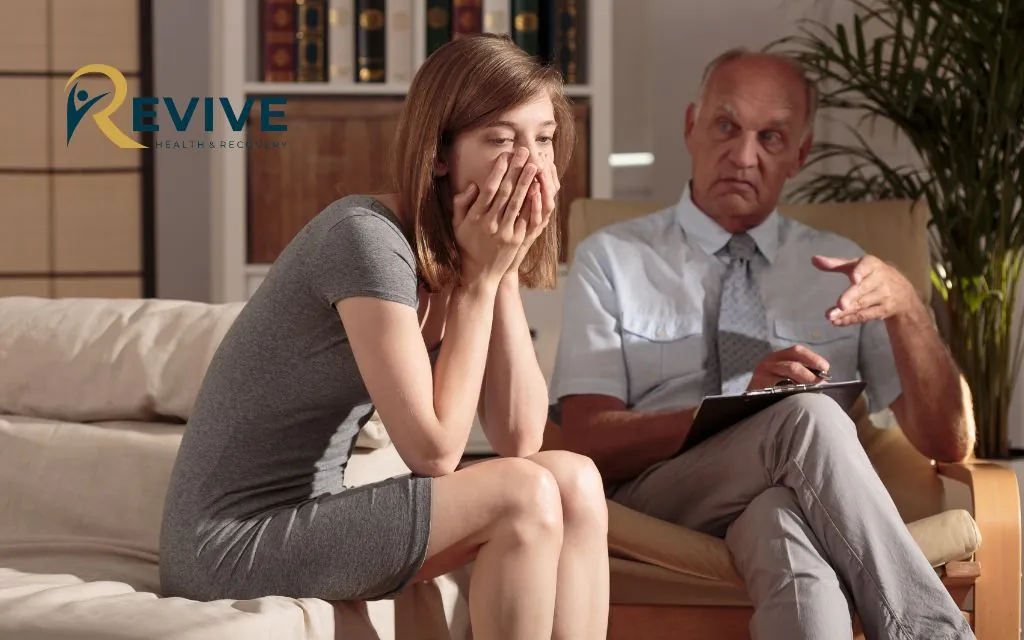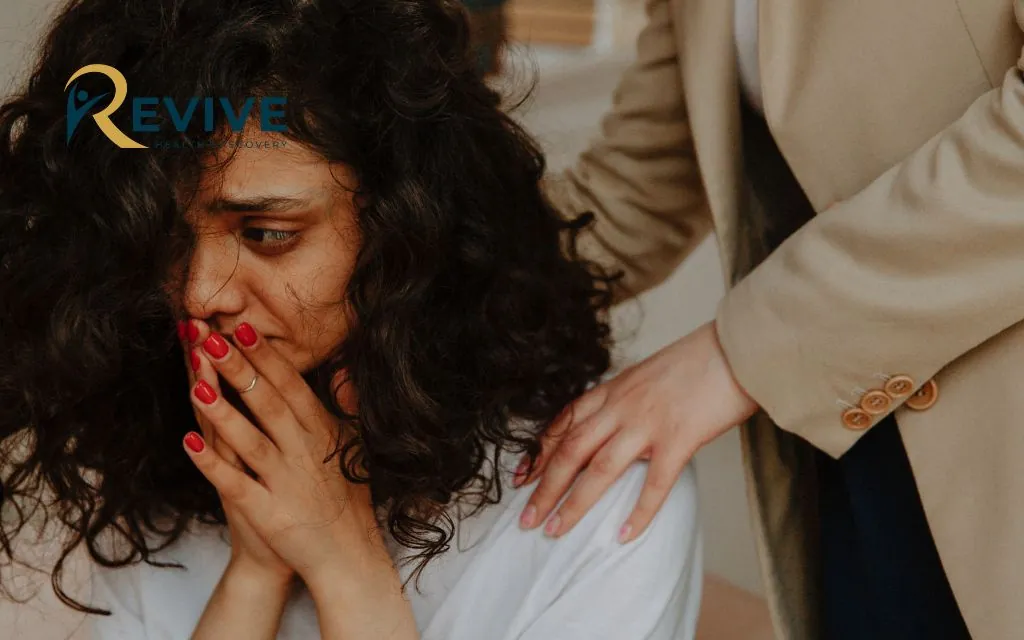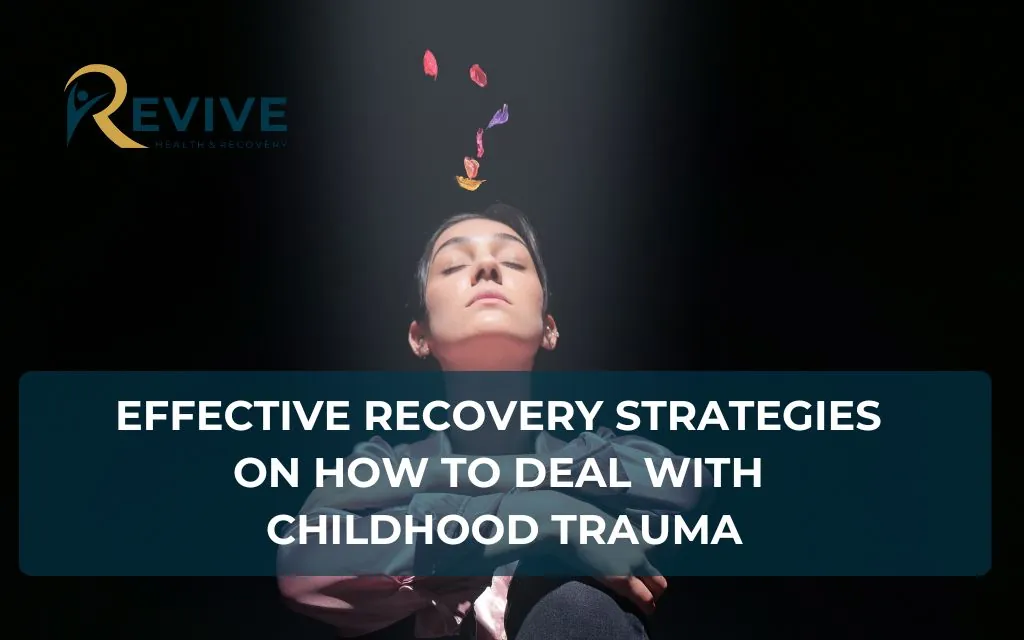Childhood trauma often leaves invisible scars that can affect us well into adulthood. Whether you experienced abuse, neglect, witnessed violence, or endured other adverse childhood experiences, the effects can be profound and long-lasting. Here in Denver, residents have unique considerations including access to specialized mountain-based therapy programs and altitude factors that can influence mental health,trauma responses and overcoming past pain.
By reading this guide, you’ll understand childhood trauma, recognize its signs, learn coping strategies, explore therapy options, and discover Denver-specific resources to start your healing journey.
What Is Childhood Trauma and How It Affects You Now
Childhood trauma occurs when a child experiences an event, series of events, or set of circumstances that is physically or emotionally harmful or life-threatening. These experiences create lasting effects on the child’s functioning and physical, social, emotional, or spiritual well-being.
Explore different types of childhood trauma at the National Child Traumatic Stress Network.
Many adults don’t realize their current struggles stem from early traumatic experiences. The effects of childhood trauma can manifest as:
- Anxiety and depression
- Post-traumatic stress disorder (PTSD)
- Trust issues and difficulty forming relationships
- Low self-esteem and negative self-perception
- Substance use disorders
- Chronic health problems
In Denver, mental health providers are seeing increasing numbers of adults seeking help for unprocessed childhood trauma. Colorado’s suicide rate consistently ranks among the highest in the nation, highlighting the importance of addressing trauma and mental health concerns in our community.

Signs You May Be Dealing with Unresolved Childhood Trauma
Emotional and Physical Symptoms
Based on what the American Psychological Association offers insights into how trauma affects mental health over time, unresolved trauma often manifests in both emotional and physical ways:
- Persistent anxiety or feeling constantly on edge
- Unexplained chronic pain or physical complaints
- Sleep disturbances including nightmares
- Emotional numbness or feeling disconnected
- Strong emotional reactions that seem disproportionate to situations
- Flashbacks or intrusive memories
Behavioral Signs
Trauma can also influence your behavior patterns:
- Avoiding people, places, or activities that trigger memories
- Excessive need for control in your environment
- Relationship difficulties or patterns of unhealthy relationships
- Self-destructive behaviors or substance use
- Difficulty trusting others or feeling safe
- Persistent negative thoughts about yourself or the world
When to Seek Professional Help in Denver
If you recognize these signs and they’re affecting your daily functioning, it may be time to seek professional support. Consider reaching out for help if:
- Your symptoms persist for more than a month
- Your ability to work, maintain relationships, or function in daily life is impaired
- You’re using substances to cope with emotional pain
- You have thoughts of harming yourself or others
In Denver, many trauma specialists understand the unique environmental factors that can influence mental health, including the effects of altitude on mood and anxiety.
Not sure if these signs point to childhood trauma? Learn how to tell if you have childhood trauma to gain clarity.
Effective Coping Strategies for Childhood Trauma in Denver
Learning to cope with trauma symptoms is an essential part of healing. These strategies can help you manage difficult emotions and build resilience.
Self-Help Techniques for Trauma Survivors
These practical tools can help you manage trauma responses:
Mindfulness Practice: Mindfulness for trauma coping helps ground you in the present moment rather than being caught in traumatic memories. Try the 5-4-3-2-1 technique: identify 5 things you can see, 4 things you can touch, 3 things you can hear, 2 things you can smell, and 1 thing you can taste.
Movement and Exercise: Denver offers numerous outdoor activities that can help release trauma stored in the body. Regular hiking, walking, or yoga in beautiful locations like Red Rocks or City Park can reduce stress hormones and improve mood.
Establish Routines: Creating predictable daily routines helps build a sense of safety and control, which is often lost during traumatic experiences.
Journaling: Writing about your experiences and feelings can help process trauma and gain insights into your triggers and responses.
For more detailed strategies, explore our guide on how to heal from childhood trauma without therapy.
Emotional Regulation Skills
Learning to manage intense emotions is crucial for trauma recovery:
Grounding Techniques: When feeling overwhelmed, try pressing your feet firmly into the ground and focusing on that sensation to bring yourself back to the present.
Deep Breathing: Practice diaphragmatic breathing by placing one hand on your chest and another on your abdomen, then breathe deeply so that only the hand on your abdomen moves.
DBT for trauma: Dialectical Behavior Therapy techniques like distress tolerance skills can help you navigate overwhelming emotions without resorting to harmful coping mechanisms.
Progressive Muscle Relaxation: Systematically tensing and releasing muscle groups to release physical tension associated with trauma.
Practical Tips and Local Support
Denver offers various resources for trauma survivors:
Community Support Groups: Organizations like The Blue Bench and Phoenix Multisport offer peer support for trauma survivors in Denver.
Nature Connection: Take advantage of Denver’s proximity to nature for healing. Research shows that spending time in natural settings can reduce stress and improve mental well-being.
Digital Resources: Apps like Calm, Headspace, and PTSD Coach offer guided meditations and tools specifically designed for trauma survivors.
Local Workshops: Denver organizations regularly offer workshops on topics like stress management and coping with trauma. Check with Denver’s Mental Health Center for upcoming events.

Therapy Options for Managing Childhood Trauma Symptoms
If self-help strategies aren’t enough to manage your symptoms, professional therapy can provide more structured support for healing.
For a deeper understanding of trauma, check out this overview from Psychology Today.
Types of Therapy: CBT, DBT, EMDR, Somatic Therapy
Several evidence-based therapies have proven effective for childhood trauma:
Cognitive Behavioral Therapy (CBT): Helps identify and change negative thought patterns resulting from trauma.
Dialectical Behavior Therapy (DBT): Combines acceptance and change strategies to build coping skills and emotional regulation.
Eye Movement Desensitization and Reprocessing (EMDR): Uses bilateral stimulation to help the brain process traumatic memories.
Somatic Therapy: Focuses on the body-mind connection to release trauma stored in the body.
Why DBT is Effective for Trauma-Related Emotional Dysregulation
DBT was originally developed for individuals with emotional regulation difficulties, making it particularly effective for trauma survivors who struggle with intense emotions.
DBT for trauma provides concrete skills in four key areas:
- Mindfulness: Being present in the moment
- Distress tolerance: Managing difficult emotions without making things worse
- Emotion regulation: Understanding and changing emotional responses
- Interpersonal effectiveness: Communicating needs effectively while maintaining relationships
Denver has several certified DBT therapists who specialize in trauma treatment. At Revive Health Recovery, our trauma specialists incorporate DBT principles into treatment plans tailored to each client’s specific needs.
EMDR for Childhood Trauma: How It Works and Its Benefits
EMDR therapy helps the brain process traumatic memories that have become “stuck” and continue to cause distress. During EMDR sessions, a therapist guides you to recall distressing images while receiving bilateral stimulation – usually through eye movements, taps, or tones.
Benefits of EMDR include:
- No need to discuss traumatic details extensively
- Often works faster than traditional talk therapy
- Reduces both emotional and physical symptoms of trauma
- Helps integrate traumatic memories into your life narrative
Many Denver therapists are specially trained in EMDR therapy for childhood trauma. Revive Health Recovery offers EMDR with therapists who understand the unique aspects of childhood trauma recovery.
Trauma-Focused CBT (TF-CBT): A Solution for Kids and Families
If you’re seeking help for a child who has experienced trauma, Trauma-Focused CBT is a highly effective approach that:
- Involves both the child and non-offending caregivers
- Teaches coping skills before processing traumatic experiences
- Helps children develop a coherent narrative about what happened
- Strengthens family communication about trauma
Denver has several specialized child therapists trained in TF-CBT. Finding a therapist who can connect with your child is crucial for effective treatment.
For more insights, explore our guide on trauma therapy techniques for adolescents.
How to Find and Book Therapy in Denver
To find a qualified trauma therapist in Denver:
- Determine your insurance coverage and budget
- Look for therapists with specialized trauma training (EMDR, TF-CBT, etc.)
- Read therapist profiles and websites to find someone who feels like a good fit
- Schedule an initial consultation to assess compatibility
To book therapy for trauma coping skills at Revive Health Recovery, call (303) 268-4655 or visit our website to schedule an appointment. Our intake specialists will match you with a therapist experienced in childhood trauma recovery.

Unique Trauma Recovery Approaches in Denver, CO
Denver offers some distinctive approaches to trauma recovery that leverage our unique environment and community.
Nature-Assisted Healing
Denver’s proximity to natural spaces provides exceptional opportunities for nature-based healing:
- Wilderness Therapy Programs: Several Denver-based organizations offer wilderness therapy that combines traditional therapeutic techniques with outdoor experiences.
- Equine-Assisted Therapy: Working with horses has proven therapeutic benefits for trauma survivors, with several programs available in the Denver area.
- Forest Bathing: This Japanese practice of mindfully experiencing nature has been adapted by Denver therapists as a complement to traditional trauma therapy.
Peer Support and Community Networks
Denver has developed strong peer support networks for trauma survivors:
- Specialized Support Groups: Find coping strategies for childhood trauma Denver offers through organizations like the Trauma Recovery Center.
- Community Gardens: Several Denver neighborhoods have community gardens with programs specifically for trauma survivors.
- Art Collectives: Creative expression through community art programs provides an alternative way to process trauma.
The Colorado Altitude-Mood Connection
Denver’s high altitude may influence how trauma symptoms manifest:
- Research suggests that living at higher elevations can affect neurotransmitter levels
- Some people may experience heightened anxiety or mood fluctuations at altitude
- Denver therapists often incorporate altitude considerations into treatment plans
- Hydration and proper self-care are especially important for trauma survivors in our high-altitude environment
Accessing Trauma Support in Denver: Local Resources and Therapy
Local Resources for Childhood Trauma
Denver offers several specialized resources for trauma recovery:
- Children’s Hospital Colorado: Offers comprehensive trauma assessment and treatment programs for children and adolescents.
- Denver Children’s Advocacy Center: Provides specialized services for children who have experienced trauma, including evidence-based treatments.
- The Blue Bench: Offers therapy and support for sexual assault survivors.
- Colorado Crisis Services: Provides 24/7 crisis support and referrals. Call 1-844-493-8255 or text “TALK” to 38255.
- Mental Health Center of Denver: Offers trauma-informed care and therapy on a sliding fee scale.
These organizations can help you find effective ways to manage childhood trauma symptoms and connect with appropriate care.
How Revive Health Recovery Can Help
At Revive Health Recovery, we specialize in trauma-informed care that addresses both the symptoms and underlying causes of childhood trauma. Our services include:
- Trauma-Focused Individual Therapy: Including EMDR, DBT, and somatic approaches
- Group Therapy: Connect with others who understand your experiences
- Family Therapy: Heal relationships affected by trauma
- Intensive Outpatient Programs: For those needing more support than weekly therapy
- Medication Management: When appropriate as part of a comprehensive treatment plan
Our team creates personalized treatment plans that respect your unique experiences and healing journey. We understand that seeking help for childhood trauma takes courage, and we’re here to support you every step of the way.
Ready to begin healing from childhood trauma? Call Revive Health Recovery at (303) 268-4655 to schedule a confidential assessment. Our compassionate team will help you develop a treatment plan tailored to your specific needs.

FAQs About How To Deal With Childhood Trauma
What are common signs of childhood trauma in adults?
Common signs include anxiety, depression, relationship difficulties, hypervigilance, emotional numbing, sleep disturbances, and physical complaints without medical explanation. If you’re experiencing these symptoms, Revive Health Recovery offers comprehensive assessments to determine if trauma is a contributing factor.
How can I find a childhood trauma therapist in Denver?
To find a qualified trauma therapist, look for credentials in trauma-specific therapies like EMDR, TF-CBT, or Somatic Experiencing. Revive Health Recovery has Denver’s leading trauma specialists who can provide effective, compassionate care tailored to your needs.
Are there free resources for childhood trauma in Colorado?
Yes, Colorado Crisis Services offers free crisis counseling and referrals. Community mental health centers often provide sliding scale services. While these resources are valuable, Revive Health Recovery offers comprehensive trauma treatment that may be covered by insurance for long-term healing.
What is EMDR therapy, and is it effective for childhood trauma?
EMDR (Eye Movement Desensitization and Reprocessing) helps the brain process traumatic memories. It’s highly effective for childhood trauma, with studies showing 84-90% of single-trauma victims no longer meeting PTSD criteria after just three sessions. Revive Health Recovery offers EMDR with certified trauma specialists.
How does TF-CBT help children recover from trauma?
TF-CBT combines trauma-sensitive interventions with cognitive behavioral techniques to help children process traumatic experiences and develop coping skills. It involves caregivers to create a supportive healing environment. Revive Health Recovery provides TF-CBT with therapists specialized in childhood trauma.
Can mindfulness really help with childhood trauma symptoms?
Yes, mindfulness practices help trauma survivors reconnect with their bodies and the present moment, reducing flashbacks and anxiety. Research shows mindfulness for trauma coping significantly reduces PTSD symptoms. Revive Health Recovery incorporates evidence-based mindfulness techniques into trauma treatment.
What if I’m not ready for therapy—are there self-help options?
While professional help is ultimately recommended for trauma recovery, you can start with books like “The Body Keeps the Score,” practice grounding techniques, join support groups, or use apps designed for trauma survivors. When you’re ready for the next step, Revive Health Recovery offers a supportive environment to begin therapy.
Conclusion
Finding ways how to deal with childhood trauma is possible with the right support and tools. Denver offers unique resources and approaches that can be powerful components of your recovery journey. Remember that dealing with childhood trauma isn’t just about managing symptoms—it’s about reclaiming your life and creating new, healthier patterns.
At Revive Health Recovery, we believe in your capacity to heal. Our trauma specialists provide compassionate, evidence-based care tailored to your unique needs and experiences. Whether you’re just beginning to explore the impact of childhood trauma or you’re ready for specialized treatment, we’re here to support you.
Take the first step toward healing by calling us at (303) 268-4655 or visiting our website to schedule a consultation. You deserve to live a life unburdened by the past, and we’re honored to walk alongside you on that journey.



